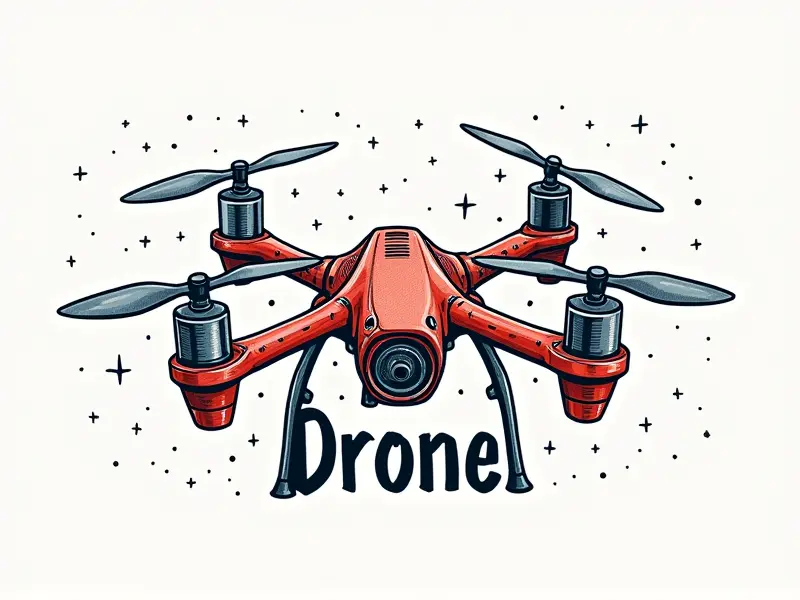Do all drones need GPS?

Drones have become an integral part of various industries, from aerial photography and videography to agriculture and surveillance. However, the question remains: do all drones need GPS? This article explores whether GPS is essential for drone operation and what alternatives exist.
Can Drones Operate Without GPS?
The ability of a drone to operate without GPS depends largely on its intended use and design. Many consumer-grade drones require GPS for basic functions like maintaining position, returning home automatically, and avoiding obstacles. However, there are scenarios where GPS is not necessary or even undesirable.
Benefits of GPS in RC Drones
The integration of GPS technology offers several advantages:
- Precision Navigation: GPS enables drones to maintain precise positions and follow predefined paths accurately.
- Return-to-Home Functionality: In case of signal loss, low battery, or user command, the drone can return to its starting point autonomously.
- Safety Features: GPS helps in avoiding collisions with obstacles and other drones by providing real-time location data.
Alternatives to GPS for Drone Navigation
For scenarios where GPS is not available or desired, there are alternative navigation methods:
- Vision-Based Systems: Using cameras and computer vision algorithms, drones can navigate by recognizing landmarks and tracking motion.
- Lidar (Light Detection and Ranging): Lidar sensors measure distance using laser pulses to create detailed 3D maps of the environment.
- Inertial Navigation Systems: These systems use accelerometers, gyroscopes, and magnetometers to track movement relative to a starting point.
Why Some Drones Don't Use GPS
There are several reasons why some drones operate without GPS:
- Battery Efficiency: GPS consumes significant power, which can be crucial for long-duration flights.
- Privacy Concerns: Some users prefer not to transmit location data that could potentially be monitored.
- Signal Interference: In urban environments or near tall structures, GPS signals may be weak or unavailable.
Autonomous Flight: Does It Require GPS?
While GPS is often used for autonomous flight to ensure accuracy and safety, it's not the only option. Autonomous drones can rely on a combination of sensors and algorithms:
- Sensor Fusion: Combining data from multiple sensors (cameras, lidar, IMU) enhances the drone’s situational awareness.
- Machine Learning Algorithms: Advanced AI can interpret sensor data to make real-time decisions for navigation and obstacle avoidance.
Navigating Drones Without GPS Tech
Drones designed for indoor or low-signal environments often employ alternative technologies like:
- Vision-Based Navigation: Utilizing cameras to map out the environment and track movement relative to fixed points.
- Ultra-Wideband (UWB) Technology: Providing precise indoor positioning through radio frequency signals.
The Role of GPS in Drones
GPS plays a critical role in many drone applications, providing essential data for:
- Precision Agriculture: Mapping fields and monitoring crop health with accurate location information.
- Surveillance and Security: Monitoring large areas efficiently by maintaining precise positions over time.
Do FPV Racing Drones Need GPS?
FPV (First-Person View) racing drones typically do not use GPS. The focus is on speed, agility, and the pilot's skill rather than precision navigation:
- Lightweight Design: Reducing weight by eliminating bulky sensors like GPS.
- Real-Time Control: Pilots navigate using live video feeds, requiring minimal onboard processing.
Benefits and Drawbacks of GPS-Free Drones
While GPS-free drones offer flexibility and reduced reliance on external signals, they also have limitations:
- Enhanced Privacy: No location data is transmitted or stored.
- Battery Savings: Reduced power consumption from not using GPS.
- Limited Autonomy: Less precise navigation and fewer safety features compared to GPS-enabled drones.
Drone Autonomy: Beyond GPS
The future of drone autonomy lies in integrating multiple technologies:
- Synthetic Aperture Radar (SAR): Enabling navigation through dense environments and adverse weather conditions.
- Swarm Intelligence: Coordinating multiple drones to work together efficiently without relying solely on GPS.
Flying Drones: Does GPS Matter?
The importance of GPS in drone operation varies depending on the application. For precision and safety-critical tasks, GPS is invaluable. However, for certain use cases like FPV racing or indoor flights, alternative navigation methods are preferred.

